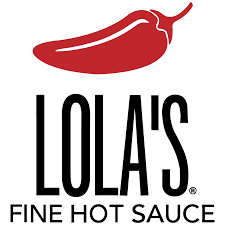Wheels begin turning in $2.7B Blue Cross Blue Shield antitrust settlement process

JOE GARDYASZ Apr 27, 2021 | 8:02 pm
3 min read time
808 wordsAll Latest News, Health and Wellness, Insurance
Millions of Blue Cross Blue Shield members across the country, including present and past Wellmark policyholders in Iowa over the past 12 years, may be entitled to a stake in a $2.7 billion antitrust settlement that was reached by 35 Blues companies and the Blue Cross Blue Shield Association last fall.
Wellmark policyholders began receiving notifications by mail this month regarding the class-action settlement, which in addition to compensating policyholders for alleged anticompetitive measures requires the companies to amend some of their business practices and alliances with other Blues members.
Wellmark and BCBS Association representatives could not be immediately reached for comment. The BCBS Association emailed the following statement: “Late last year, the Blue Cross Blue Shield Association and Blue Cross and Blue Shield companies reached an agreement to settle a legal dispute with subscribers challenging elements of licensing agreements. We reject claims plaintiffs made in the lawsuit. However, to reach a settlement, we have agreed to make some operational changes and provide payment to members of the class involved in the case.
“Settling this case allows us to remain focused on the goal we have had for more than 90 years: improving access to quality healthcare for all Americans and the health of our local communities,” the association stated. “BCBSA remains a strong organization and BCBS companies’ exceptional services and capabilities will not change. We will continue to lead the industry with healthcare solutions designed to improve the health of our members.”
The settlement, negotiated between Blue Cross Blue Shield and a plaintiffs’ group late last year, resolved seven years of litigation in a case brought in federal court in Alabama, which alleged that the Blue Cross companies benefited from anticompetitive tactics that included dividing up markets between the group’s numerous partners and member companies.
Class members who submit valid claims may receive a cash payment from a net settlement fund, which after deducting attorneys’ fees, administration expenses and other costs from the $2.67 billion settlement fund leaves about $1.9 billion.
The Blue Cross companies that settled in the case denied all allegations of wrongdoing, according to a settlement website established by BCBS. The 35 independent and locally operated Blue Cross Blue Shield companies deliver health insurance coverage to 1 in 3 Americans across all 50 states, the District of Columbia and Puerto Rico.
The companies asserted “that their conduct results in lower healthcare costs and greater access to care for their customers,” according to a summary on the website. “The Court has not decided who is right or wrong. Instead, Plaintiffs and Settling Defendants have agreed to a Settlement to avoid the risk and cost of further litigation.”
As the Wall Street Journal reported in September, the settlement also “adjusts some of the rules governing how the insurance group does its business to prevent regional fiefdoms and anticompetitive alliances from forming, while lifting requirements that Blue Cross Blue Shield’s revenue come primarily from its member companies and subsidiaries.”
The settlement ends a rule that had been followed by the Blue Cross companies that limited the share of each company’s total national revenue that can come from business that isn’t under Blue brands. That change could also increase competition among the companies if they choose to expand their non-Blue lines of business in one another’s geographies, experts have said.
It means that Wellmark can elect to compete for business in other states beyond its traditional markets of Iowa and South Dakota, where it has enjoyed large market shares. Conversely, its Blue Cross cousins could opt to compete against them in these markets.
The settlement payouts — of which 93.5% will go to fully insured plans — apply to those covered by certain Blue Cross Blue Shield health insurance or administrative services plans between February 2008 and October 2020. A separate settlement class period for self-funded accounts goes from September 2015 through October 2020.
All individuals, insured groups and self-funded accounts that purchased or were enrolled in a plan during the applicable class period will also benefit from the parts of the settlement requiring the insurance companies to change certain practices that were alleged to be anticompetitive.
According to the proposed plan of distribution filed with the court on March 12, the payment for each claim for each authorized claimant in a fully insured plan will be calculated by dividing the total premiums paid by that particular plan by the total premiums paid by all authorized claimants who submit claims and then multiplying that by the total dollars in the net settlement fund. For example, $1,000 in total premiums paid by a plan divided by $10 billion in premiums paid by all authorized claimants equals 0.0000001 — which multiplied by $1.78 billion is $178.
More information about the settlement and the process for filing claims may be found on the Blue Cross Blue Shield Settlement Website.








